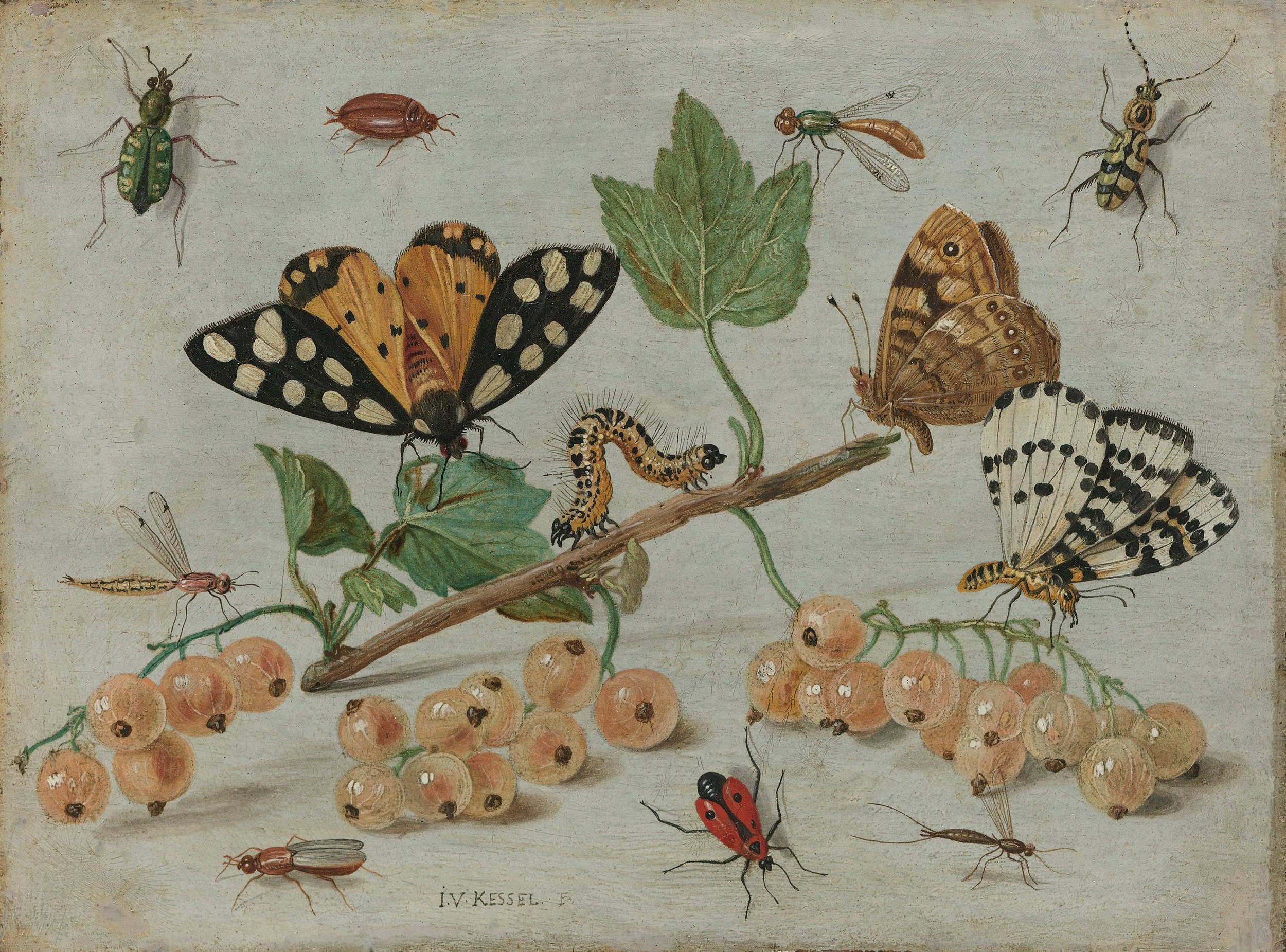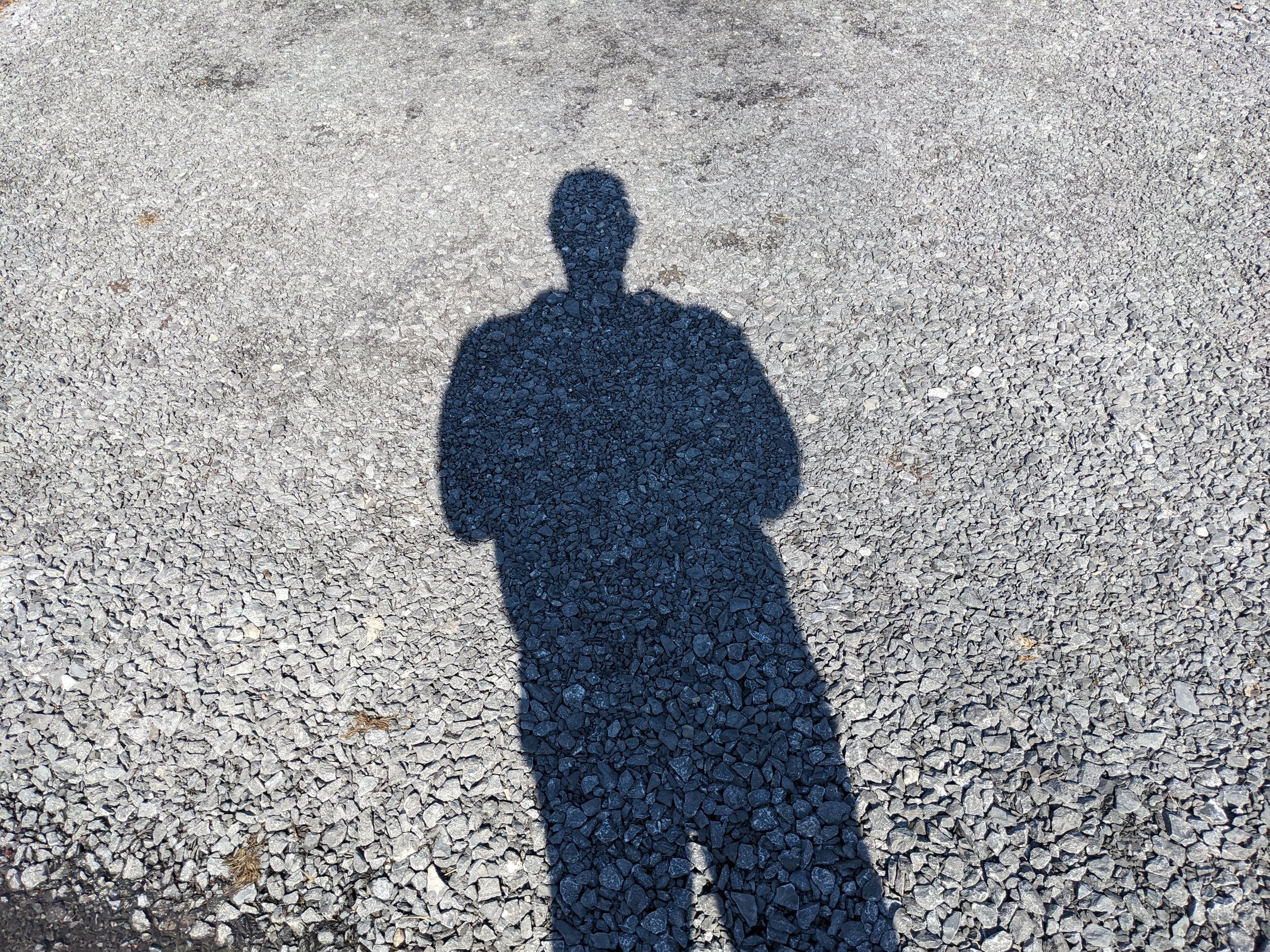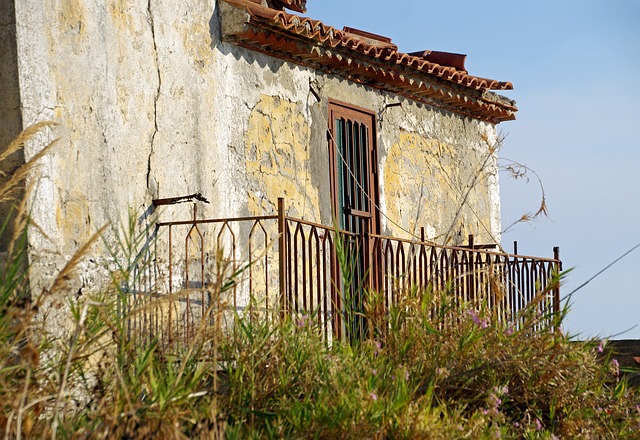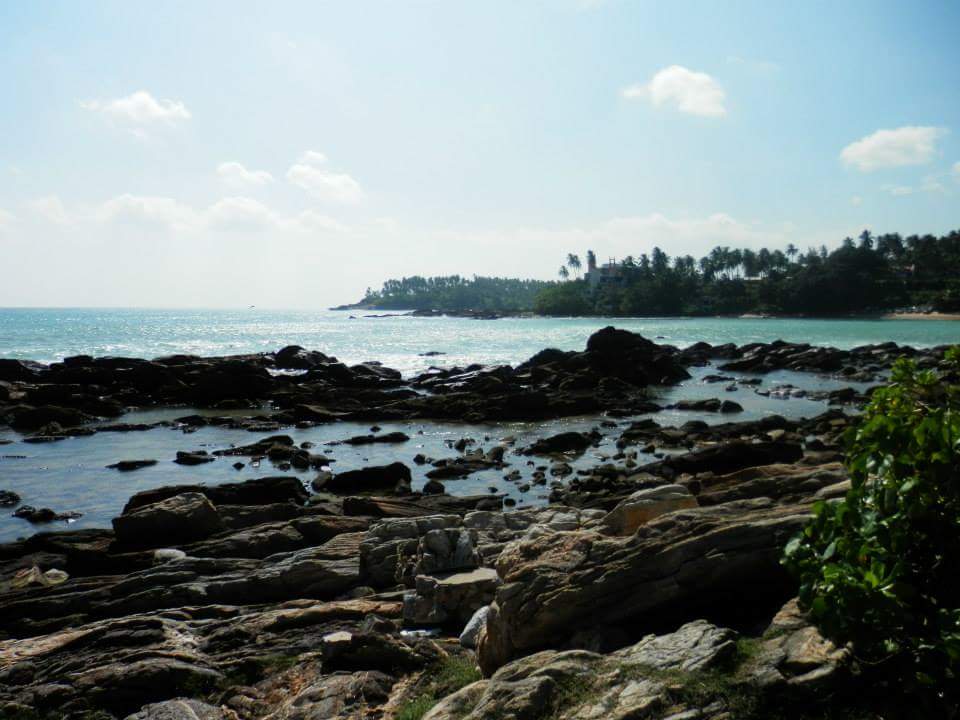Harmas

Harmas
Provençal, noun
Wasteland
The potential definitions, actually, are several, and just conflicting enough that the word, it seems, isn’t totally translatable from the Provençal. It could be wasteland, yes, but it could also be fallow land, or uncultivated land. It could be abandoned land; looking back further and connecting the word to its Latin root—eremus—it could even mean something more like solitude.
I haven’t seen the word harmas anywhere but one place: the memoirs and writings of an entomologist straddling the 19th and 20th centuries, Jean-Henri Fabre. He was relatively unknown during the majority of his life, up until the end, when, as an old man, tired and a bit wounded from a lifetime of chasing jobs that would allow him to do what he loved—look at beetles and wasps on his own terms—he managed to buy, in the Vaucluse region of France, what he called l’harmas.
I didn’t give the word much thought originally. I nurse a twin love of and suspicion for etymology—the way it truly can illuminate, and the way it is often deployed by lazy writers to announce a profound thought. Entomology, on the other hand, I only have love for, listing all those little beauties whose lives have intersected with mine over the last three decades. Flat coreids marching against the ceiling, crimson-flanked soldiers swaying on milkweed stems, clusterpuffs of orange ladybugs on windowsills, one unbelievably iridescent junebug I’ve remembered for thirty years before—what an early gift, brought by the wind. Maybe the smallness of an insect only serves to emphasize its beauty, its interest, and our own smallness in time and space.
I came to the old man’s harmas more than a century after he died. It had been turned into a museum. Fabre was obsessed with insects: “The insect leads me,” he wrote. “It is stronger than me.” He wrote scores of books on the subject, exchanged letters with Charles Darwin, and informed Louis Pasteur, who was attempting to undo an ongoing silkworm blight across France that was threatening silk production, of the very existence of chrysalises. Upon a sudden visit from Pasteur, who wanted to learn about the threatened insect, Fabre ran across the road to his landlord, who kept silkworms, and brought back a pocket’s worth of cocoons to show the ignorant Pasteur. (“Encouraged by the magnificent example of Pasteur…I have made it a rule to adopt the method of ignorance in my investigations of the instincts. I read very little,” wrote Fabre later, not at all tongue-in-cheek.)
“It was his obsession with observation that had brought him to this rock bottom.”
Financially, and perhaps to some degree emotionally, Fabre had barely floated through the first half of his life: Raised on his grandparents’ farm on a cold granite ridge, he was the descendent “of rye-sowers, cattle-drovers…whose evenings were lighted by a pine stick burning on a bit of slate stuck into the wall; who sheltered themselves in the sheep fold when the great cold came, and there listened to the howling of the wolves close at hand.” To buy himself time and space for the thing he loved—observation of the natural world—he became a teacher. He was horrifically paid, purchasing his mid-week pinch of tobacco on credit, and renting space on a blackboard to puzzle out differential equations. Fired after he taught a class of schoolgirls about the basics of sexual reproduction among plants (“eminently hateful things in the eyes of some people, whose feeble eyes are dazzled by the light of day”), he was then immediately evicted by the scandalized “old maids who own my house.” Nearly fifty, with a family to support, Fabre found himself fully, finally destitute. It was his obsession with observation that had brought him to this rock bottom. It was also what that saved him, for he had become, through his obsession, friends with famous scientists who loaned him money, with which Fabre bought himself, finally, solitude, in the form of a plot of land amidst the semi-arid fields of the Vaucluse.
The harmas, the wasteland. It was what he had long wished for: “a bit of land, oh, not so very large, but fenced in, to avoid the drawbacks of a public way; an abandoned, barren, sun scorched bit of land, favored by thistles and by wasps and bees.” The word was a local one, specific to the district of Sérignan-du-Comtat, and given especially to those bits of land that had never been turned profitable or useful, but sat poor and pebbly instead. But never, wrote Fabre, had he seen so many tiny workers gather in one spot: builders, weavers, collectors, architects, plasterers, carpenters, miners. All of them, insects. It was, in fact, his Eden.
When I came to L’Harmas de Jean-Henri Fabre, as it is now called, what struck me was how lush it had become. It was raining lightly. Oleander, feijoa, and bear’s breeches were blooming, and the garden was stuffed with plant life from all around the world. Cypress trees sprang upward, coltsfoot ran underneath, and fennel wisped in the middle-distance. A plopping noise drew me to a line of frogs on the edge of a fountain, aware of my arrival, and a turtle nearby started, slowly, to take its leave as well. Here, Fabre had worked among his tiny creatures (“O my pretty insects!”) until he died, studying them in contraptions of his own design, even making a film on the cicada life-cycle in 1912—the first documentary I’ve ever heard of. He was trying to figure out, always, their instinct, and wrote here strange, riveting books interspersing snippets of his personal life with that of flies, caddis worms, caterpillars, maggots, and cicadas.
What is my instinct? This was the question hanging around me that summer. “The insect leads me,” Fabre wrote, and when I saw this quote on the wall of the museum, where my instinct was aflame, I felt unbearably moved at this old man’s trajectory: the way that as a child, he hid from the cold amidst the bodies of their sheep, in the dark, on that granite ridge; and the way he simply let what he was interested in guide him to some version of satisfaction and intellect fulfilled.
I was not old when I arrived at the harmas, but I was beginning to crest into middle-age, and I figured that crest was a time for second- and third-guessing of instincts. Instincts like the one I followed to “avoid highways” here, lengthening the trip by a factor of three and spinning me through literal hundreds of French roundabouts. I had also followed a sense of my own strange draw to obsessives, of which Fabre was one. I sparked to them, and often felt lightly crushed by a sense of intimate familiarity with their lives. It was about the way they made things harder for themselves through the force of their instinct. And the way their victories, then, tasted sweeter and more sorrowful at once. I felt it in Fabre’s writing—how he dared to chronicle the pains his soul felt alongside the burrowing habits of certain grubs.
*
I never liked the word “diagnosis.” Its Greek roots boil down to “apart” and “recognize,” as in, “recognize this problem that is apart from me.” But what if you didn’t know what “me” was, or if the problem was in fact instinct, and therefore internal and unchangeable? I preferred “framework,” although it felt crunchier. It is a compound word, which sits in the way of easy etymology, and it brings to mind a sturdy wooden square around my head that I can pop in and out of. This is all to say that a “framework” had been gently thrown my way around the time of my visit to Fabre’s harmas, and we would soon be testing me for it, attempting to determine if the frame was signed with the letters OCD. And as I waited for the test, I read online, against my therapist’s wishes, about the framework. Easy options were jettisoned for more difficult things with OCD, I read. Highways for roundabouts. Small things became magnified. Little things, I thought to myself, with no small amount of humor, like grubs and digging wasps and botfly larvae.
“How was I supposed to leave my instinct behind when it had brought me here, and was hopelessly embedded inside me? ”
How was I supposed to leave my instinct behind when it had brought me here, and was hopelessly embedded inside me? Nearly twenty years ago now—how could it be?—I’d swung my net through the fields of East-Central Illinois, yielding a fine flour of tiniest matter in the seams of the fabric: bare petals and pollen, grass seeds and grit. Slightly larger, then, the insects: thick-bellied grasshoppers and cabbage white butterflies, paltry fare but still interesting. Mason bees. Green lacewings. Sphinx moths. Larger things that should not be caught: branches of aster. Ropes and ropes of loose grass. I would never have said that I felt I was catching the world—that would be idiotic—but instead that the world was so much fuller than I had thought, with little things to look at under every leaf. And this discovery—of the insane abundance of literally everything, and the way there was always a smaller thing to find, always a smaller road to travel instead of a gigantic one that everyone already knew—threw and delighted and began to drive me. I didn’t spend much time thinking about what came next: the kill jar, a glass chamber bottomed with plaster of Paris soaked in ethyl acetate. I didn’t know yet that you can start to kill yourself with the heady fumes of constant yearning and relentless movement.
Over the next twenty years, the initial instinct to swing the net in the field became a growing need to net the world and turn it into writing. Writing, writing, writing, endless writing; at some point I dedicated my entire life to the pushing out of words onto paper. I filled entire recipe boxes with notecards full of ideas that could never amount to anything; I worked futilely on doomed project after doomed project; I worked through panic and through losses of hair and weight and friends. The young person whose instinct was to simply do things she liked out of interest became buried, if not disappeared, by this new-same me, who had forever been waiting, I see now, for total submersion in words. The crest was not about middle age. The crest was about waiting for my self to finally, and for good, fall apart and become covered in what I had made. Without realizing it, I had come here to the harmas in part because I was trying to return to myself, the gone young person in Illinois, net in hand. But I couldn’t determine how good that self really was, and if she even existed anymore. Here, then, I wondered: What part of me was salvageable, what pieces of my instincts (if they even existed still) were just lying fallow, untouched by the obsessions that had at some point taken me over?
Was Fabre the same person at eighty that he was at seven, huddled with his grandparents among the sheep under the brave, fierce light of a single pine stick? How did he become, after his crest, even more himself?
*
In general, when you regard OCD, my therapist told me, it is not meant to be with positivity. You are meant to call it a monster, she said, or, as one of her young clients called it, a dragon. A worm, I was thinking to myself as she spoke, though I like worms and I love their Latin name (annelids). Maybe instead, then, an overgrown thicket of some kind, watered by compulsion and need. You are meant to work to eradicate your compulsions, which were often, in my case, to write and to produce. You are meant to rip them out.
It was a blurry thing to hold in my head. I didn’t understand how to untangle the differences and overlaps between harmas and wasteland and overgrown Eden and regularly productive fields. When Fabre found his harmas, his wasteland, it was a saving grace—but it was also initially destabilizing. “I greatly fear that the peach is offered to me when I am beginning to have no teeth wherewith to eat it,” wrote Fabre. What a strange thing, to reach something like mid-life and see a neat bisection, a fruit sliced through the middle. The first half of your life one way, the second half, if you can bite into the peach, a complete reversal. The harmas would be the setting for the actual work of his life, his pleasure work, the thing we know him by: the ten-volume Souvenirs Entomologiques, Entomological Memoirs. A biographer put it this way: “Paradoxically, just at the scene in which Fabre takes the stage in the role in which the world knows him best…the biographer finds that narrative materials—plot, situation, incident—have given out. Nothing seems to remain but atmosphere.”
I stood there in the quiet, the stillness, hair poofing out slightly in the drizzle. Occasionally, the cries of kids streaked through the background of the harmas, but the larger sound here was simply, again, a thick atmosphere that stretched on. And on. I regarded the damp plants. I regarded my own brain. Funny, I thought to myself. Is there a name for something that drives you crazy and saves you simultaneously? Quiet? Mind? Writing? Insects? Harmas?
A person’s life, when regarded up close, is comprised of nearly unbearably large efforts. I began to call and email people who seemed to have found some version of the harmas themselves. A writer friend who had recently ended his marriage and was crying a lot told me, using a metaphor about weevils and carapaces, “I wonder if we spend the first half of our lives growing our carapaces and then the second half (if we’re lucky) taking them off.” An old friend who had come through years of self-inflicted pain told me: “It’s about learning to manage these instincts, not making them go away.
In Fabre’s home, netted half-domes rest on wooden beams cut to his chin-height. A photo hangs on a wall: the tiny man propping his head against his hand, watching some unseeable little thing live its life beneath his gaze. In his last days, unable to eat, he stretched himself upon the ground of the harmas and spoke with the crickets. In the quietude, I stood maybe where he had done this and watched a digging wasp plunge itself into the pebbly soil, attempting to burrow. I took a video. It was not a coincidence—this was an entomologist’s house after all, so insects were expected—but it was somehow personal. Maybe the wasp was the millionth-great-granddaughter of one Fabre had watched here. All that fierce trying against the long quiet stretch of time.
Such, then, is the harmas: not nothingness, not wasteland, but a stable, overlooked place where you might finally be able to sink into your instinct, knowing it better now and the ways it can take you down endless roundabouts. It’s where you arrive, if you are lucky, after the ruinous, energetic experiments of your life up to that point. The fountain gurgles, the small room where the old man had studied his fossils and cicadas sits silent and cool. Not an Eden, in all of its drama, but an atmosphere comprised of a fine mixture of things, as caught in a butterfly net swung long ago, in youthful interest and a burning instinct against the dark. And there, at the bottom of that net, dirt and small petals and seeds, and little creatures just going about their lives.
ABOUT THE AUTHOR
Lucy Schiller is an assistant professor of nonfiction writing at Texas Tech and a working writer with recent essays in, among other places, the Columbia Journalism Review, the Paris Review Daily, Iowa Review, West Branch, DIAGRAM, and elsewhere. She lives in Lubbock, TX.
Read Lucy'’s “Behind the Essay” interview in our newsletter.
Header photo by Europeana.
Edited by Aube Rey Lescure.










